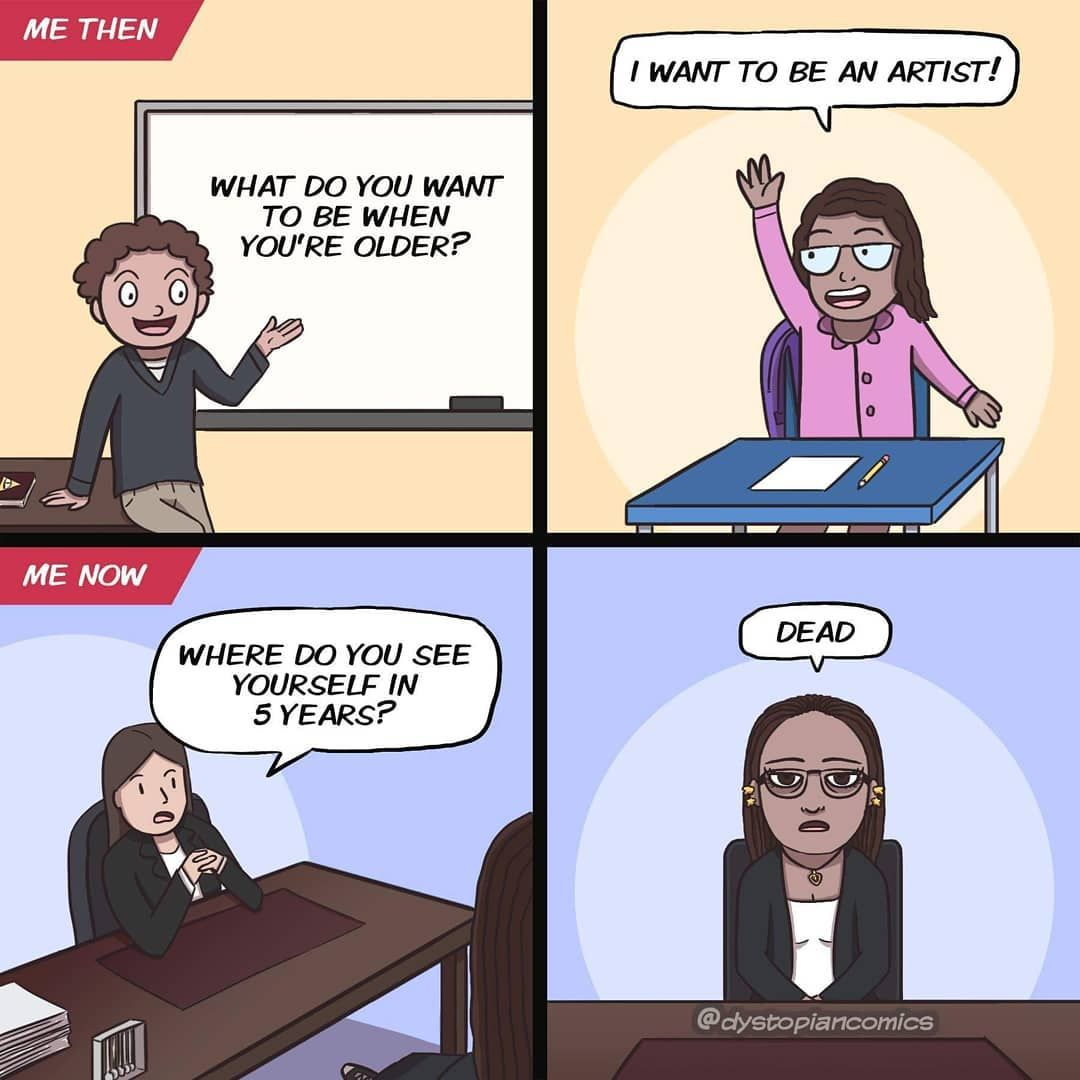Self-deprecating humor might sound like an odd concept at first, but it plays a surprisingly positive role in our lives. This unique form of humor allows us to laugh at ourselves while simultaneously delivering profound benefits to our mental health. Engaging in self-deprecating humor can act as a form of humor therapy, promoting self-acceptance and fostering a sense of connection with others. By embracing our imperfections through the psychology of laughter, we can effectively lighten our emotional burdens and enhance our resilience against anxiety and depression. Ultimately, this type of humor serves as a valuable tool in navigating life’s challenges, reminding us that it’s perfectly fine to take ourselves a little less seriously while reaping the benefits of laughter in the process.
Humor that involves poking fun at oneself is often referred to as self-mocking wit or self-derogatory comedy. This form of laughter has become increasingly recognized for its capacity to facilitate genuine connectivity and cultivate social bonds. With its roots in vulnerability, this approachable humor can unveil shared experiences and universal flaws, drawing people closer. Many recognize the importance of this comedic style as a tool not just for entertainment but also for psychological well-being. When we allow ourselves to be a little ridiculous, we open the door to acceptance, embrace our vulnerabilities, and experience the uplifting effects of collective amusement.
Understanding Self-Deprecating Humor
Self-deprecating humor can be an incredibly powerful tool for mental health. It allows individuals to laugh at their own flaws, create relatability, and break the ice during awkward moments. This form of humor can ease anxiety, signaling that imperfections are a natural part of life. Clinicians often see the benefits of laughter as it fosters connection and promotes a feeling of safety when discussing uncomfortable emotions. By openly laughing at themselves, individuals not only invite laughter from others but also cultivate a more receptive atmosphere for vulnerability and self-acceptance.
Moreover, self-deprecating humor empowers individuals to manage their mental health more effectively. When individuals confront their shortcomings with a smile, they eliminate the overwhelming seriousness that typically surrounds these concerns. As the psychology of laughter reveals, laughter releases endorphins—those feel-good chemicals—that alleviate stress and enhance mood. In this way, self-deprecating humor can be a therapeutic tool that transforms negative self-talk into manageable, humorous reflections, ultimately leading to a healthier mindset and improved emotional resilience.
The Benefits of Laughter on Mental Health
The benefits of laughter extend far beyond just feeling good in the moment; they have substantial implications for mental health. Engaging in humor therapy is an effective way to diminish symptoms of anxiety and depression. Studies have shown that laughter triggers the brain to release neurotransmitters that foster happiness and reduce stress. By integrating humor into daily life, individuals can uncover not only joy but also a greater sense of control over their emotional states. This is particularly beneficial in therapeutic settings, where humor can deflate the tension often felt during difficult conversations.
Additionally, the practice of humor—especially self-deprecating humor—can enhance relationships by building rapport and trust. When people share a laugh, they create memorable connections that can lead to deeper emotional bonds. The psychology of laughter suggests that humor is a universal language that transcends cultural barriers and fosters inclusivity. By embracing humor within relationships, individuals can cultivate positive environments that encourage open conversations about mental health, ultimately benefitting everyone involved.
Finding Balance with Self-Acceptance Humor
Self-acceptance humor is a vital aspect of mental well-being, allowing individuals to embrace their quirks and differences without facing self-judgment. This form of humor promotes a balanced view of oneself, steering away from harsh criticisms that often accompany personal flaws. Instead of focusing solely on what needs improvement, self-acceptance humor encourages people to playfully acknowledge their imperfections, which reduces the emotional weight of these issues. By doing so, individuals can develop healthier self-perceptions and diminish the burden of unrealistic expectations.
Moreover, self-acceptance humor encourages resilience in the face of challenges. It assists individuals in reframing negative experiences into humorous anecdotes that highlight survival rather than defeat. This shift in perspective not only fosters emotional growth but also creates a welcoming atmosphere for personal transformation. Accepting oneself with humor ultimately leads to a more fulfilled life, as individuals learn to embrace the entirety of their experiences—both good and bad—while laughing along the way.
The Importance of Context in Humor
Understanding the context of humor is essential, especially when employing self-deprecating humor. While this style can foster relatability, it can also backfire if misperceived. People sensitive to the nuances of language may interpret self-deprecating remarks as a plea for sympathy rather than a light-hearted jest. Finding the right balance in delivery is crucial; humor should serve to connect and uplift, not alienate or burden others. This highlights the importance of context, wherein the appropriateness of a joke can significantly impact how it is received.
Furthermore, the cultural context around humor plays a significant role in its effectiveness. Individualistic cultures often encourage self-deprecating humor as a means of showing humility and openness. In contrast, collectivist cultures might lean towards humor that pokes fun at others, fostering a sense of community and belonging. Recognizing these cultural differences can enhance our understanding of humor’s impact and adapt our approach accordingly for the best outcomes in building relationships and addressing mental health challenges.
Breaking Down the Myths of Self-Criticism
Self-criticism often disguises itself as self-improvement, but it can be counterproductive and harmful. The common myth surrounding self-deprecation is that it is synonymous with self-hatred, perpetuating cycles of negativity that dictate how individuals view themselves. Embracing self-deprecating humor allows individuals to break free from this myth by adding layers of understanding to their self-image. This humor recognizes that while certain attributes may not be ideal, they are not solely defining, and laughing in the face of them can help mitigate their weight.
In fact, the more we challenge the myth of self-criticism with humor, the easier it becomes to cultivate a healthier mindset. Practicing self-acceptance humor turns the lens away from relentless self-improvement towards self-acceptance. Instead of viewing flaws as burdens, individuals learn to see them as common experiences that everyone shares. This understanding can lead to a more compassionate self-dialogue, ultimately making it easier to face life’s challenges with grace and good humor.
Creating Connections Through Humor
One of the most profound benefits of humor lies in its capacity to forge connections between people. When individuals engage in humorous exchanges, especially self-deprecating humor, it fosters an environment of openness and camaraderie. Sharing humorous anecdotes about personal shortfalls creates a safe space where individuals feel understood and accepted. This mutual exchange of laughter helps counteract feelings of isolation and triggers a sense of community, which is vital for overall mental health.
Moreover, humor acts as a social glue, enabling individuals to navigate difficult conversations more easily. When faced with deep disagreements or sensitive topics, humor can be a game-changer. It diffuses tension and allows people to find common ground, even amidst their differences. By using humor strategically, individuals can engage more productively with others, leading to enhanced communication and emotional healing. The benefits of laughter extend far beyond a quick chuckle; they provide a crucial lifeline for connection and understanding.
Navigating Humor Across Cultures
Navigating humor across different cultures can be a complex yet enriching experience. Each culture has its unique approach to humor, defined by social norms and historical context. In individualistic societies, self-deprecating humor is celebrated, as it encourages relatability and vulnerability. On the other hand, in collectivist societies, humor often focuses on intergroup relationships, poking fun at others to bring communities closer. Understanding these cultural distinctions can enhance interpersonal communication, especially when addressing mental health in diverse settings.
Moreover, navigating cultural nuances in humor can foster a broader understanding of mental health challenges on a global scale. By employing humor therapy relevant to different cultural contexts, practitioners can create tailored approaches to mental health care. This adaptability is essential for effective communication and healing, bridging gaps between individuals of varied backgrounds. Ultimately, embracing cultural perspectives on humor enriches our understanding of laughter’s power and its role in promoting mental well-being across the globe.
Establishing Boundaries with Humor
While humor offers many benefits, establishing boundaries is essential to ensure it remains a constructive force. Self-deprecating humor should come from a place of kindness rather than self-derision. If self-deprecating jokes turn into self-flagellation, they can negatively impact mental health, leading to deeper feelings of inadequacy. It’s crucial to remain vigilant and assess whether such humor fosters connection and positivity or leads to self-pity and alienation.
Additionally, open communication with friends and family can help set boundaries around humor. Expressing discomfort when jokes cross a line can lead to healthier interactions and stronger relationships. Creating an environment where everyone feels safe to express their thoughts about humor helps reinforce personal boundaries and cultivates respect. By thoughtfully navigating humor’s role in our lives, we can ensure it contributes positively to our mental health and social interactions.
Empowering Yourself with Humor Therapy
Empowering oneself through humor therapy involves recognizing the profound impact of humor on mental well-being. This therapeutic approach utilizes laughter as a mechanism for healing, helping individuals cope with stress and emotional pain. By actively engaging in humor therapy, individuals learn to harness the psychological benefits of laughter, which can illuminate a path towards self-discovery and emotional empowerment. Embracing humor allows individuals to view challenges with a lighter heart, fostering resilience and adaptability in the face of adversity.
Empowerment through humor therapy also involves accepting and celebrating one’s uniqueness. The practice encourages individuals to find humor in their struggles, turning adversity into a shared human experience. Acknowledging that life is imperfectly funny helps foster self-acceptance and builds a community of support among individuals facing similar challenges. Through humor, we can empower ourselves and others to move beyond stigmas associated with mental health, leading to a more compassionate society.
Frequently Asked Questions
What are the psychological benefits of self-deprecating humor?
Self-deprecating humor can enhance mental health by alleviating feelings of anxiety and depression. It serves as a tool for self-acceptance, allowing individuals to recognize their flaws without harsh criticism. By using humor to address vulnerabilities, people can cultivate a more positive self-image and foster connections with others, thereby improving social relationships.
How does self-deprecating humor relate to humor therapy?
Self-deprecating humor is a vital component of humor therapy, which leverages the benefits of laughter to promote psychological well-being. This type of humor encourages individuals to laugh at themselves, reducing stress and facilitating emotional regulation while enhancing their ability to cope with life’s challenges.
What role does self-acceptance humor play in mental health?
Self-acceptance humor fosters a healthy attitude towards one’s imperfections, which can boost self-esteem and reduce feelings of inadequacy. By making light of their shortcomings, individuals can create a safe space for vulnerability, reinforcing their mental resilience and openness to growth.
Can self-deprecating humor improve relationships?
Yes, self-deprecating humor can significantly improve relationships by promoting relatability and approachability. When people share their flaws humorously, they signal to others that it’s okay to be imperfect, which can foster deeper connections and mutual understanding.
What is the impact of laughter on mental health?
Laughter has been shown to have numerous mental health benefits, including reducing stress, increasing endorphin levels, and improving mood. Engaging in self-deprecating humor allows individuals to harness these benefits, providing a healthy outlet for managing life’s difficulties while enhancing overall well-being.
How can one effectively incorporate self-deprecating humor without crossing the line into self-criticism?
To effectively use self-deprecating humor, aim to keep the tone light-hearted and relatable without resorting to harsh self-criticism. Focus on sharing humorous anecdotes that reflect self-awareness and humility while ensuring that it fosters connection rather than eliciting pity.
Is there a cultural context to self-deprecating humor?
Yes, self-deprecating humor is often more prevalent in individualistic cultures, where relatability and approachability are valued. In contrast, collectivist cultures may favor humor that pokes fun at others. Recognizing these cultural nuances can enhance our understanding of how humor functions in social interactions.
How can self-deprecating humor facilitate emotional regulation?
By introducing humor into conversations about challenges or mistakes, individuals can mitigate the emotional intensity of the situation. This technique aids in re-establishing clarity and perspective, allowing one to address feelings without becoming overwhelmed by them.
What is the psychology behind taking oneself less seriously?
Taking oneself less seriously is associated with greater self-awareness and humility. It allows individuals to acknowledge their limitations and failures, promoting a healthier mental state and enhancing social connections through shared humor and vulnerability.
Can self-deprecating humor reflect low self-esteem?
While self-deprecating humor can signal humility and self-awareness, it may also reflect underlying low self-esteem if it is excessively harsh or frequent. It’s vital for individuals to evaluate their motivations and the context of their humor to ensure it fosters a positive self-narrative.
| Key Point | Explanation |
|---|---|
| Self-Deprecating Humor | A form of humor that allows individuals to laugh at themselves, promoting connection and relatability. |
| Health Benefits | Using self-deprecating humor can help reduce feelings of anxiety and depression, providing emotional relief. |
| Vulnerability and Openness | Embracing humor about oneself signals self-confidence and humility, leading to increased likability. |
| Cultural Differences | Self-deprecating humor is more common in individualistic cultures; collective cultures may focus on humor at others’ expense. |
| Avoiding Extreme Self-Criticism | Though humor can be beneficial, it is important to differentiate it from negative self-talk or seeking sympathy. |
| Humor as a Connection Tool | Using humor can bridge disagreement gaps, helping people connect and relating to one another better. |
Summary
It’s tough being me, but at least I can make a joke about it! Learning to take myself less seriously feels like a weight off my shoulders, because who needs extra stress when you can just laugh at your own quirks? Self-deprecating humor not only lightens my own emotional load but also invites others to join in the fun, creating a bond of camaraderie that says, “We’re all just human!” So, next time you trip over your own feet (like I do regularly), remember to chuckle and embrace your wonderfully imperfect self!




